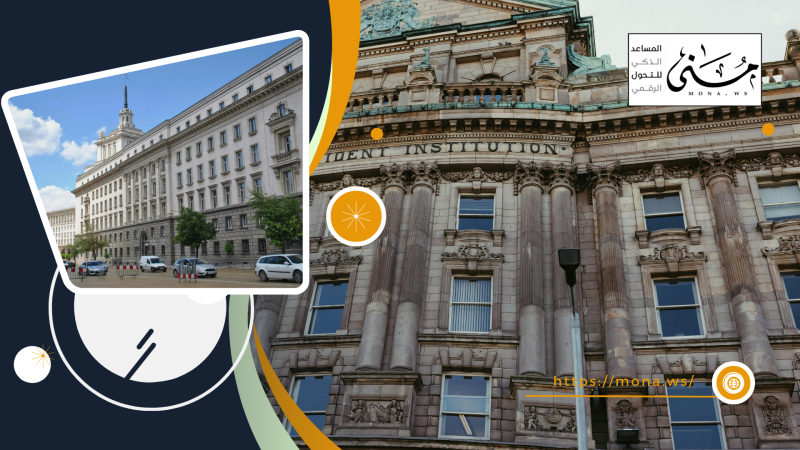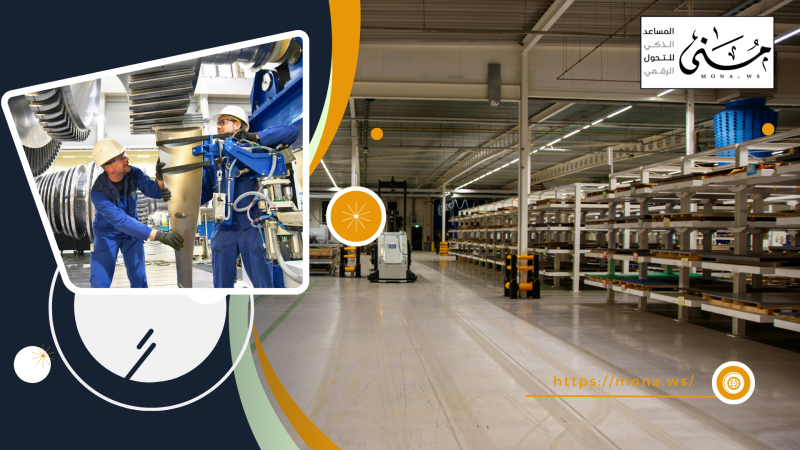The UAE has realized early on the importance of blockchain technology, and has sought to adopt it to enhance the efficiency of government services and make it a global center in this field. In April 2018, the UAE government launched the "Emirates Blockchain Strategy 2021" with the aim of converting 50% of government transactions at the federal level to the blockchain platform by 2021.
To achieve this goal, the UAE has worked to develop an advanced digital infrastructure that supports blockchain technology. It launched the "Dubai Blockchain Strategy" with the aim of transforming Dubai into a city fully managed by the blockchain platform by 2020, which enhances government efficiency, establishes new industries, and enhances global leadership in this field.
Among the pioneering initiatives launched by the UAE in this field are:
Emirates Blockchain Strategy 2021:
It aims to convert 50% of government transactions to the blockchain platform by 2021, saving time, effort, and resources, and enabling individuals to conduct their transactions at the right place and time.
Dubai Blockchain Strategy:
Aims to transform Dubai into a city fully powered by the blockchain platform by 2020, enhancing government efficiency, establishing new industries, and enhancing global leadership in this field.
Dubai has played a pivotal role in hosting blockchain summits and awards, which has contributed to strengthening its position as a global hub for this technology. The UAE’s efforts have also contributed to attracting global companies specializing in blockchain, making it a preferred destination for startups and innovative projects in this field.
With regard to digital assets, experts and specialists have confirmed the UAE’s global leadership in developing the infrastructure and legislative and regulatory system for the digital assets sector, and employing blockchain and coding technology to enhance the effectiveness of these assets.
The UAE continues its efforts to strengthen its position as a global hub for blockchain, by adopting emerging technologies and developing digital infrastructure, which contributes to achieving its future vision in this field.
The role of alliances in developing digital infrastructure and supporting innovation in the region:
Alliances contribute to enhancing cooperation between the public and private sectors, leading to the development of an integrated digital infrastructure that supports blockchain technology. These alliances also provide platforms for innovation and experimentation, encouraging startups and innovators to develop new solutions that meet local and regional market needs.
Examples of joint projects implemented within these alliances:
Within the framework of alliances and partnerships to promote the adoption of blockchain technology in the Middle East, several joint projects have been implemented that aim to develop digital infrastructure and support innovation. The most prominent of these projects are:
Fils Carbon Credit Exchange Platform: This platform was launched as the first of its kind in the Middle East to rely on blockchain technology to exchange carbon credits. "Fils" aims to help global companies integrate sustainable values into the payment system, which enhances transparency and efficiency in the trading of carbon credits.
Voltron Trade Finance Project: In a pioneering step, the dual-platform blockchain technology was implemented for the first time in the Middle East through the "Voltron" project. This project aims to enhance the efficiency and transparency of trade finance operations by linking two complementary blockchain platforms, which contributes to accelerating the pace of trade operations and ensuring high levels of privacy and security.
Dubai Blockchain Strategy: The Dubai government has launched an initiative to transform all its documents into a blockchain platform by 2020. Dubai has established the Global Blockchain Council, a joint public-private initiative that brings together government departments, local institutions, and international startups to support the development and application of technology in various fields.
These joint projects reflect the commitment of countries in the region to adopting modern technologies and enhancing cooperation between various parties to achieve sustainable digital transformation.
Joint digital currency between Saudi Arabia and the UAE: The Saudi Arabian Monetary Agency (SAMA) and the Central Bank of the United Arab Emirates have worked on a joint digital currency project for payments between the two countries, with the aim of promoting the growth of blockchain technology in the region.
How these alliances contribute to the exchange of expertise and knowledge between countries and companies:
The alliances provide platforms and forums that bring together various stakeholders, facilitating the exchange of knowledge, expertise, and best practices. They also organize workshops, training programs, and conferences that contribute to capacity building and enhancing communication between countries and companies, leading to accelerating the adoption of blockchain technology and developing innovative solutions that meet the needs of the region.
Impact of Initiatives on the Economy and Society
Blockchain technology contributes to strengthening the economy by reducing operating costs, improving the efficiency of business operations, and increasing transparency in financial transactions. It also helps accelerate international transfers, enhance cybersecurity, and provide a reliable business environment. In addition, it contributes to achieving sustainable development by supporting financial inclusion, bridging the digital divide, and enhancing environmental sustainability by tracking resources and reducing waste in supply chains. Adopting this technology in the region enhances confidence in financial and governmental institutions, which contributes to attracting investments and creating new job opportunities in the digital economy.
The UAE continues to consolidate its position as a leading global hub for adopting blockchain technology, through its ambitious strategies and innovative initiatives that promote digital transformation across the region. Regional and international cooperation remains a crucial factor in accelerating the adoption of this technology, as the exchange of expertise and partnerships contributes to developing an advanced digital infrastructure that supports innovation and economic growth. With the progress
 هل تعلم أن 50% من التعاملات الحكومية في الإمارات تعتمد على البلوك تشين؟ تعرّف على استراتيجيات التحول الرقمي الرائدة.
هل تعلم أن 50% من التعاملات الحكومية في الإمارات تعتمد على البلوك تشين؟ تعرّف على استراتيجيات التحول الرقمي الرائدة.










Comments
Add New Comment